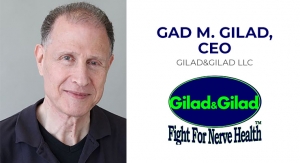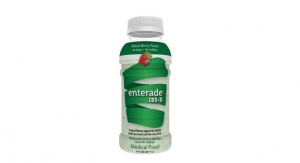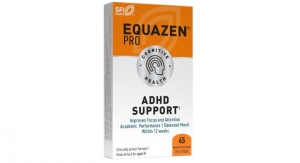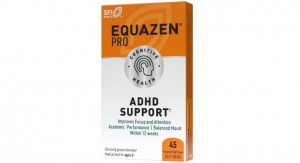07.13.17
The Council for Responsible Nutrition (CRN), Washington, D.C., is exploring adding representation for companies in the medical food industry to its mission, following a unanimous vote by the CRN Board of Directors at its June Board meeting to launch an examination of this burgeoning sector of the nutrition category.
According to CRN Board Chair Jim Hyde, vice president & general manager, Balchem Human Nutrition and Pharma, “CRN’s Board of Directors believes there is enormous growth potential for the medical food industry over the next several decades as healthcare practitioners, the academic community, and policy makers continue to look at the ways that nutrition contributes to better health. We take seriously the name of our association, and incorporating ‘medical food’ along with dietary supplements and functional food to our ‘responsible nutrition’ portfolio is forward-thinking and a logical next step for CRN to consider.”
CRN President & CEO Steve Mister focused on the potential synergy of adding medical food, explaining, “CRN’s strong reputation was created by our 45-year history of representing mainstream companies in the dietary supplement industry. Several years ago, we opened our doors to functional food companies with the reasoning that we were already representing the ingredient suppliers manufacturing the ingredients that went into the food. We envision the same synergistic approach with medical food. It’s all a spectrum of nutrition that provides health benefits to consumers. If there is an interest from companies who manufacture and market medical foods, we’re open to working with those companies to ensure their interests—and the interests of their consumers—are being properly represented to Congress, regulators, and in the media.”
As part of its exploratory process, CRN intends to convene the major players in the industry, some of whom are already CRN members, as part of a listening tour to determine where voids in representation exist, if CRN can fill those needs, and what the regulatory and policy priorities of the medical food industry should be. “We’ve already begun talking with some of the significant providers of these products to the market, and we understand some of their concerns focus on the lack of clarity provided by FDA’s oversight of the industry, leading to some controversy and uncertainty about these products,” said Mr. Mister.
The term “medical food” is defined by Congress under Section 5(b)(3) of the Orphan Drug Act as “a food which is formulated to be consumed [orally] or administered internally under the supervision of a physician and which is intended for the specific dietary management of a disease or condition for which distinctive nutritional requirements, based on recognized scientific principles, are established by medical evaluation.
CRN has previously expressed concerns that a more narrow interpretation of that definition offered by FDA that limits the range of available products may undermine Congressional intent for this category, thereby stifling the market’s ability to reach its potential. On the other hand, CRN fears that some companies may try to take advantage of the lack of clarity with illegitimate products, leaving the industry open to the risk that rogue players will define the industry.
“In many ways, there are similarities between where medical foods are today and the dietary supplement industry immediately following the passage of the Dietary Supplement Heath and Education Act,” said Mr. Mister. “CRN wants to work with responsible companies who want to play by the rules. We want to ensure those rules protect consumers, but also allow for industry to innovate and grow. Twenty years from now, we don’t want medical food companies to be in the position of looking back and wishing they had established themselves as a unified industry sooner. Consumers will benefit from a vibrant medical food industry that develops and delivers helpful, innovative products under reasonable regulation that assures fly-by-night companies don’t grab and destroy the reputation of those companies investing in science and following the law.”
According to CRN Board Chair Jim Hyde, vice president & general manager, Balchem Human Nutrition and Pharma, “CRN’s Board of Directors believes there is enormous growth potential for the medical food industry over the next several decades as healthcare practitioners, the academic community, and policy makers continue to look at the ways that nutrition contributes to better health. We take seriously the name of our association, and incorporating ‘medical food’ along with dietary supplements and functional food to our ‘responsible nutrition’ portfolio is forward-thinking and a logical next step for CRN to consider.”
CRN President & CEO Steve Mister focused on the potential synergy of adding medical food, explaining, “CRN’s strong reputation was created by our 45-year history of representing mainstream companies in the dietary supplement industry. Several years ago, we opened our doors to functional food companies with the reasoning that we were already representing the ingredient suppliers manufacturing the ingredients that went into the food. We envision the same synergistic approach with medical food. It’s all a spectrum of nutrition that provides health benefits to consumers. If there is an interest from companies who manufacture and market medical foods, we’re open to working with those companies to ensure their interests—and the interests of their consumers—are being properly represented to Congress, regulators, and in the media.”
As part of its exploratory process, CRN intends to convene the major players in the industry, some of whom are already CRN members, as part of a listening tour to determine where voids in representation exist, if CRN can fill those needs, and what the regulatory and policy priorities of the medical food industry should be. “We’ve already begun talking with some of the significant providers of these products to the market, and we understand some of their concerns focus on the lack of clarity provided by FDA’s oversight of the industry, leading to some controversy and uncertainty about these products,” said Mr. Mister.
The term “medical food” is defined by Congress under Section 5(b)(3) of the Orphan Drug Act as “a food which is formulated to be consumed [orally] or administered internally under the supervision of a physician and which is intended for the specific dietary management of a disease or condition for which distinctive nutritional requirements, based on recognized scientific principles, are established by medical evaluation.
CRN has previously expressed concerns that a more narrow interpretation of that definition offered by FDA that limits the range of available products may undermine Congressional intent for this category, thereby stifling the market’s ability to reach its potential. On the other hand, CRN fears that some companies may try to take advantage of the lack of clarity with illegitimate products, leaving the industry open to the risk that rogue players will define the industry.
“In many ways, there are similarities between where medical foods are today and the dietary supplement industry immediately following the passage of the Dietary Supplement Heath and Education Act,” said Mr. Mister. “CRN wants to work with responsible companies who want to play by the rules. We want to ensure those rules protect consumers, but also allow for industry to innovate and grow. Twenty years from now, we don’t want medical food companies to be in the position of looking back and wishing they had established themselves as a unified industry sooner. Consumers will benefit from a vibrant medical food industry that develops and delivers helpful, innovative products under reasonable regulation that assures fly-by-night companies don’t grab and destroy the reputation of those companies investing in science and following the law.”



























